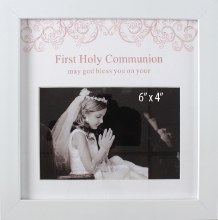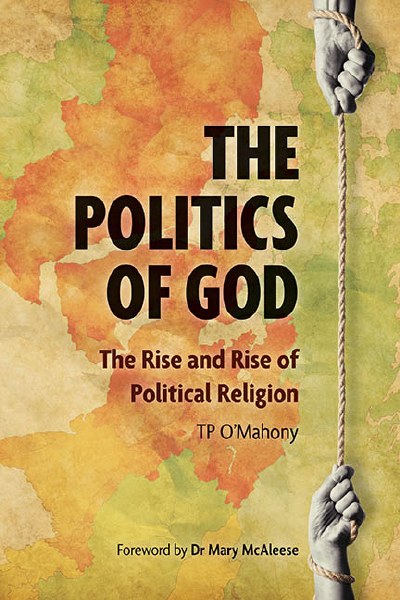
The Politics of God: The Rise and Rise of Political Religion
Extent: Paperback
Pages: 287
Size: 234 mm x 156 mm
Publisher: Veritas Publications
‘This book is a warning that should be heeded by all people of faith to conscientiously and conspicuously make faith work towards the creation and sustaining of a global culture of love, open-minded, inclusive, affirming of all God’s creation.’
Dr Mary McAleese, former president of Ireland
***
‘TP O’Mahony brings his sense of wonder and curiosity to the big life questions we all ignore and does so with a quiet wisdom and with the insight of an experienced journalist … readable and provocative.’
Dr Maurice Manning, chancellor of the National University of Ireland
***
‘As this fascinating combination of narrative and insight shows, the seismic events of Vatican II more than half a century ago still have lessons for many of us today, not least because of the disconcerting rise of political religion.’
John Horgan, Irish Times reporter at the final session of Vatican II
‘Those who say religion has nothing to do with politics do not know what religion is’.
Attributed to Mahatma Gandhi, this quotation encapsulates the principal argument and overarching raison d’etre of TP O’Mahony’s latest offering, The Politics of God: The Rise and Rise of Political Religion. Immersed in both the minutiae and the grand sweep of ecclesiastical politics both at home in Ireland and abroad for more than fifty years, the now retired distinguished journalist and commentator on religious affairs is uniquely positioned to speak authoritatively on the importance of religion in shaping political and moral attitudes of people on a worldwide basis. In this noteworthy and relevant critique, the author interrogates the complex interaction between religion and politics and according to the back cover blurb provides ‘a timely analysis of political religion and its capacity to do great good but also great harm’.
This book’s genesis dates back to the cataclysmic events of 9/11. The enormous geopolitical consequences of the attacks on the World Trade Centre and the Pentagon demanded a radical reappraisal of the role of religion in the global world order and an exploration of what political religion really means in modern times. However, TP abandoned that project until a chance discovery in 2010 of Madeleine Albright’s book, The Mighty and the Almighty: Reflections on America, God and World Affairs, reignited his passion and interest in the topic. The resultant work, The Politics of God: The Rise and Rise of Political Religion, offers a comprehensive and insightful analysis of the historical, social, and political factors that have contributed to the emergence of political religion in various parts of the world and explores the implications of this phenomenon for democracy, human rights, and peace. It is an engaging and provocative analysis of religion and politics which, as Dr Mary McAleese argues in her powerfully crafted Foreword, deserves close attention by those on both sides of the debates that currently trouble our political institutions and churches.
Writing for a broad audience, O’Mahony does not delve too deeply into the technical hermeneutical and theological issues around religion, politics and holy war. Instead, he provides a wide-ranging narrative that encompasses world concerns such as Islamism, the Ukrainian conflict, Liberation theology and nationalism that is interspersed with some searing commentary on well-known religious and/or political leaders and events. Theologically perceptive and politically shrewd, the author gifts the reader the benefit of his extensive experience observing, participating and analysing the shifting sands of global modern discourse and the age-old human foibles and follies that can afflict even the most eminent churchmen and high-ranking political figures and regimes.
TP O’Mahony’s 176 page book is thought-provoking and rich in personalities and comment. The twenty three relatively short and pithy chapters are akin to essays or discrete articles; each one may be read as a satisfying independent and informative whole. Covering a wide range of religious traditions, from Islam and Christianity to Judaism and Hinduism, the author highlights the ways in which each has been co-opted for political purposes. He contends that political religion tends to be anti-democratic and demonstrates, with examples from Israel, Iran and Saudi Arabia, how it often leads to the suppression of individual freedoms. Ever the professional journalist with a weather-eye on reaching as wide a readership as possible, O’Mahony seamlessly weaves the more abstract realities of religious/political constructs alongside an assessment of well-known personalities, whilst keeping the language accessible and the interest level high.
In chapter 12 entitled Mixed Doubles the author, quoting Eliza Filby, ‘The religious faith of leaders is not to be underestimated. It can drive some to war, others to peace; some left, some right’, introduces a four-chapter series of focused profiles: eight major religious and/or political figures are chosen and paired as being representative of the very embodiment of political religion – Francis Spellman/John Charles McQuaid; Ian Paisley/Karol Wojtyla; Martin Luther/Dietrich Bonhoeffer and Dorothy Day/Margaret Thatcher. O’Mahony is unsparing in his analysis of the authoritarian and ruthless use – and abuse – of power by Spellman and McQuaid, two ‘consummate ecclesiastical politicians’. Most startling too is the acerbic characterisation of Pope St. John Paul as a narcissistic dictator-pope, and his pairing with the virulently anti-Catholic Ian Paisley who ‘harnessed religion to the political ideology of hard-line fundamentalist unionism’ may cause some disquiet among certain readers.
However, that swipe of a caustic pen administered by a veteran committed commentator on religious affairs may be a fitting response to documented historical events. After all, some Catholic apologists would claim that the survival of the Christian Church for over 2000 years, despite its being governed by corruptible men, is proof of its divine institution! And for balance, extreme Islamism, worldwide religious zealotry and denial of religious liberty are all similarly castigated and exposed. Desmond Tutu once wisely remarked ‘When people say that religion and politics don’t mix, I wonder which Bible it is they are reading’ – a vindication of TP O’Mahony’s perspective if, indeed, such validation is deemed necessary.
- Reviewer: Mary Adamson, Bryanstown, Drogheda (Intercom Magazine - May2023)
Click and Collect - Free
Click & Collect is available across Ireland and Northern Ireland in our Veritas stores. We will contact you when your item(s) are ready for collection. Please visit your branch after you receive contact from us that your items are available to collect. The order will be ready for you within 2-5 working days, subject to opening hours, order volumes, if the item is in stock and time order is placed.
Standard Express Delivery
Complimentary shipping within Ireland & Northern of Ireland is available on orders over €100, delivery fees will be added according to the area of delivery, as described below:
| Country Zone | Under €100 | Over €100 | TimeFrame |
|---|---|---|---|
| Ireland | €6.50 | Free! | 3-7 working days |
| Northern Ireland | €6.50 | Free! | 3-7 working days |
| Country Zone | Under €50 | Over €50 | TimeFrame | UK | €12.00 | €15.00 | 3-7 working days |
|---|---|---|---|
| Europe | €17.00 | €25.00 | 3-7 working days |
| USA & Canada | €35.00 | €50.00 | 7-14 working days |
| Rest of the World | €55.00 | €55.00 | 7-21 working days |
| **Trade Customers** | |||
|---|---|---|---|
| Country Zone | Under €500 | Above €500 | TimeFrame |
| Ireland | €6.50 | Free! | 3-7 working days |
| Northern Ireland | €6.50 | Free! | 3-7 working days |
| UK | €12.00 | Free! | 3-7 working days |
Please Note:
• Click and collect orders are "free" as there is no shipping involved.
• If the order after discount is applied is below €100 or €500 (trade orders), shipping will be charged.
• EUA, Canada and Rest of the World shipping charges are for parcels with maximum weight of 2kg.
• These time frames are a guide and shipping times may vary, especially at busy periods.
• Please allow a few days leeway for personalised products or pre-orders.
• We are aware of some shipping delays throughout Europe and the USA caused by unforcing circusntances or territorial border control restrictions. This is out of our control. Please allow a few days leeway for your delivery.
• Subject to placing your order before 12:30pm. Does not apply to pre-ordered items.
• Check on our Delivery Policy page, the delivery areas. We do not deliver to Channel Islands or the Isle of Man.
Description
In the aftermath of 9/11, which highlighted the dark alliance between religion and iolence, there was a new realisation among policymakers around the world of the significance of religion as a factor in global affairs. We are faced with almost daily evidence in newspapers and on radio, television and social media platforms of the capacity of religion to do much good but also to do great harm. The phrase ‘the paradox of religions’ has been used to describe this dual effect. The Politics of God: The Rise and Rise of Political Religion examines the rise of political religion and its global impact, particularly in light of the Russo-Ukrainian War that has caused Europe’s largest refugee crisis since WWII.
More so than at any time before in history, it is now recognised that religions, in their beliefs, doctrines and practices, are involved in much that is divisive and harmful. But at the same time they are involved in much that is extremely good.
About the author:
TP O’Mahony was born in Cork in 1939. From 1967 to 1989 he was religious affairs correspondent with the Irish Press and thereafter with the Irish Examiner. As such he covered papal visits to South America, the USA, Switzerland, Ireland and Britain. He has also covered conclaves, synods, assemblies and conferences in Rome, Uppsala and Bogotá.
Most Popular this Week





First Communion Heart Shaped with floating Chalice Pendant
















